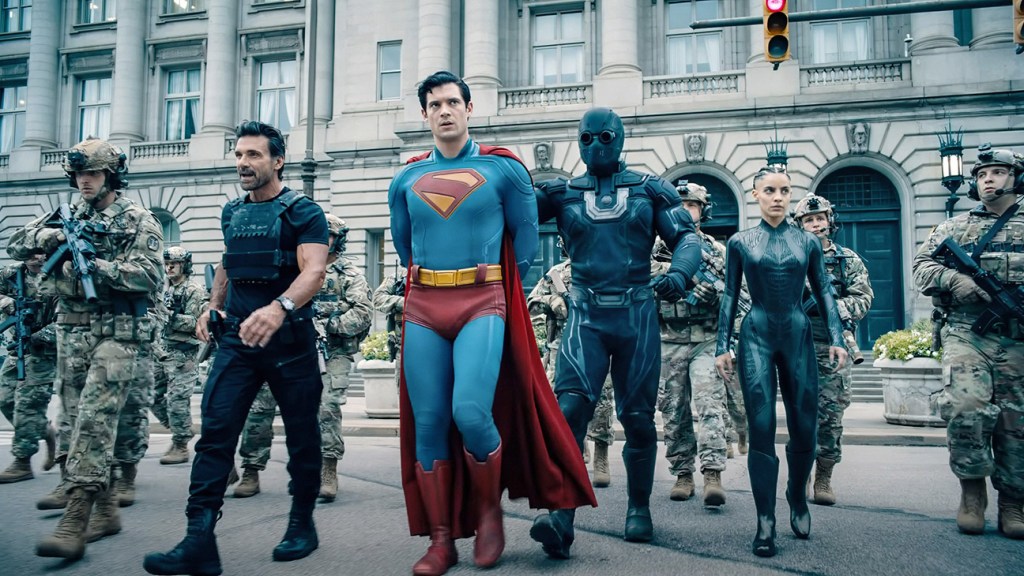Superman: An Immigration Story From the Start

The Story of Superman as an Immigrant
When filmmaker James Gunn described his new Superman film as an immigrant story, critics accused him of politicizing the character. However, the truth is that Superman has been an "illegal alien" for 87 years. This fact was highlighted when a campaign in 2013 titled "Superman Is an Immigrant" reminded America of this reality. It’s important to note that the character's origins are deeply tied to the experience of immigration.
The inspiration for Superman's journey began with his arrival in America as a baby refugee, fleeing a dying planet. Like many immigrants before him, he changed his name from the foreign-sounding Kal-El to the more anglicized Clark Kent. He learned new customs, balanced his heritage with his adopted culture, and used his unique abilities to serve the nation that initially feared him.
This isn’t just subtext; it’s text. The creators of Superman, Jerry Siegel and Joe Shuster, were children of Jewish immigrants who understood displacement intimately. In 1938, as Hitler rose to power, they created a hero who embodied their American dream: someone who could protect the vulnerable because he knew what it meant to be cast aside. Superman’s very essence springs from being what he called “a universal outsider.” This outsider status isn’t incidental to his heroism; it’s the source of it. Those who have known rejection become champions of acceptance. Those who have felt powerless fight for the defenseless.
Today, that outsider would be deported. In fact, without birthright citizenship, Superman would never have existed at all. Jerry Siegel and Joe Shuster, born in Cleveland to Jewish immigrant parents, would have been stripped of citizenship and deported to Nazi-controlled Europe—to face certain death in countries they’d never known.
No Jerry and Joe means no Superman. No Superman means no superhero genre. The children of immigrants who followed their lead—creating Batman, Captain America, Spider-Man, and at least 90 percent of all iconic superheroes—would have met the same fate. The modern mythology that defines American popular culture worldwide: all erased.
Superman endures because he represents something larger than politics: the American paradox itself. We are a nation built by the displaced—willing immigrants and unwilling slaves, refugees and dreamers, all orphaned from somewhere else. Superman, the ultimate orphan, transforms this shared wound into purpose, proving that our greatest strength comes not from where we’re born, but from what we choose to become.
In 2013, the campaign sparked a national conversation through a simple selfie challenge: Americans sharing their family immigration stories while declaring “Superman Is an Immigrant.” Critics inadvertently amplified our message—every time they said the phrase to mock it, they reinforced the undeniable truth of it.
As Gunn’s film opens and Trump’s deportation machine accelerates, that truth feels more urgent than ever. Superman returns to theaters just days after America’s final Fourth of July before its 250th birthday. The question isn’t whether we’ll continue celebrating our independence, but whether we’ll remember what made us super in the first place.
At Monday’s premiere, Gunn said, “This is a movie about kindness, and I think that’s something everyone can relate to.” But media on the right, in fact, does not seem able to relate to this message of kindness. On Fox News, Jesse Watters joked under a "Superwoke" chyron that Superman’s cape reads “MS-13” and questioned whether he is “from Uganda.” The conservative outlet Outkick argued that America doesn't have "to be ‘kind' just because a fictional character from another planet brought some good to a fictional Earth," and that "America is desperate for apolitical entertainment."
Accusations of “politicizing” Superman come laughably late. Since 1938, Superman has defined “the American Way” through action. In 1940, while the isolationist America First movement preached neutrality, Superman took on Adolf Hitler. In 1949, he spoke directly to schoolchildren: “If you hear anybody talk against a schoolmate because of his religion, race, or national origin—don’t wait: tell him THAT KIND OF TALK IS UN-AMERICAN.” He promoted vaccines, helping fund the polio vaccine. He exposed the Ku Klux Klan’s secrets on national radio. When a gunman opens fire on immigrants, blaming them for stealing his job, Superman blocks every bullet. He stood between peaceful protesters and riot police after Ferguson. After the murder of George Floyd, he declared: “Dreams save us. Dreams lift us up and transform us. And on my soul, I swear… until my dream of a world where dignity, honor and justice becomes the reality we all share - I’ll never stop fighting. Ever.”
Superman is America’s conscience wearing a cape—and that terrifies critics because they’re supporting a real-life supervillain.
Our greatest superpower as a nation has always been our ability to welcome the stranger and watch them soar. Like Superman himself, America draws its strength not from what it was born with, but from what it chooses to become—a place where the orphaned can find home, where the powerless can discover their power, where those who flee dying worlds can help build new ones.
In choosing fear over hope, walls over welcome, we don’t just betray Superman’s legacy—we abort our own future. The real superheroes have always been immigrants. It’s time we started acting like we believe it.



Komentar
Posting Komentar